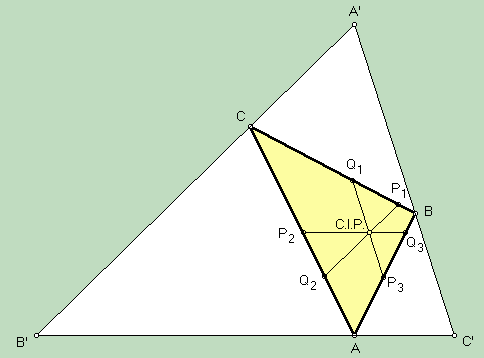In 1989, Peter Yff (a Dutch name; just say ife) proved that there is a unique configuration in which the three angles A, B, C have isoscelizers of equal length, and that they meet in a point here named the congruent isoscelizers point. Yff also proved that trilinears for this point are
cos(B/2) + cos(C/2) - cos(A/2) :
cos(C/2) + cos(A/2) - cos(B/2) :
cos(A/2) + cos(B/2) - cos(C/2).
